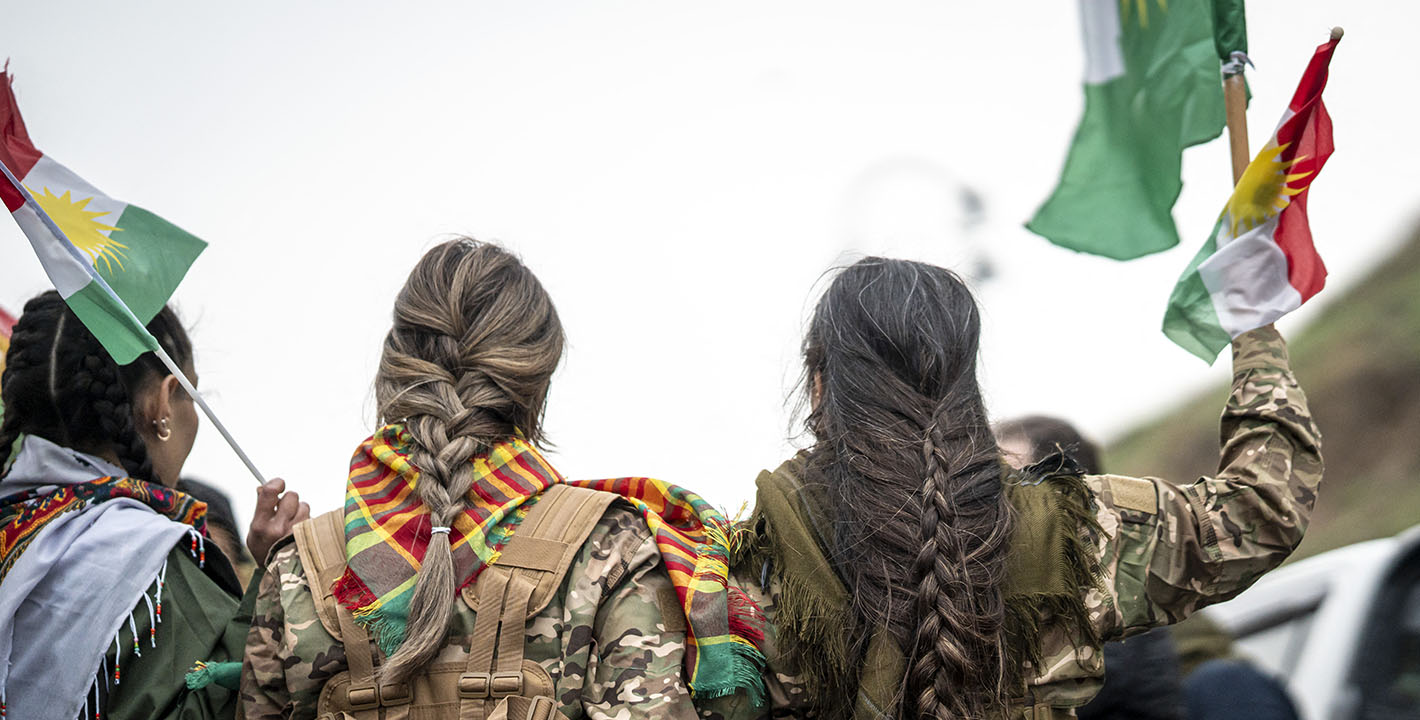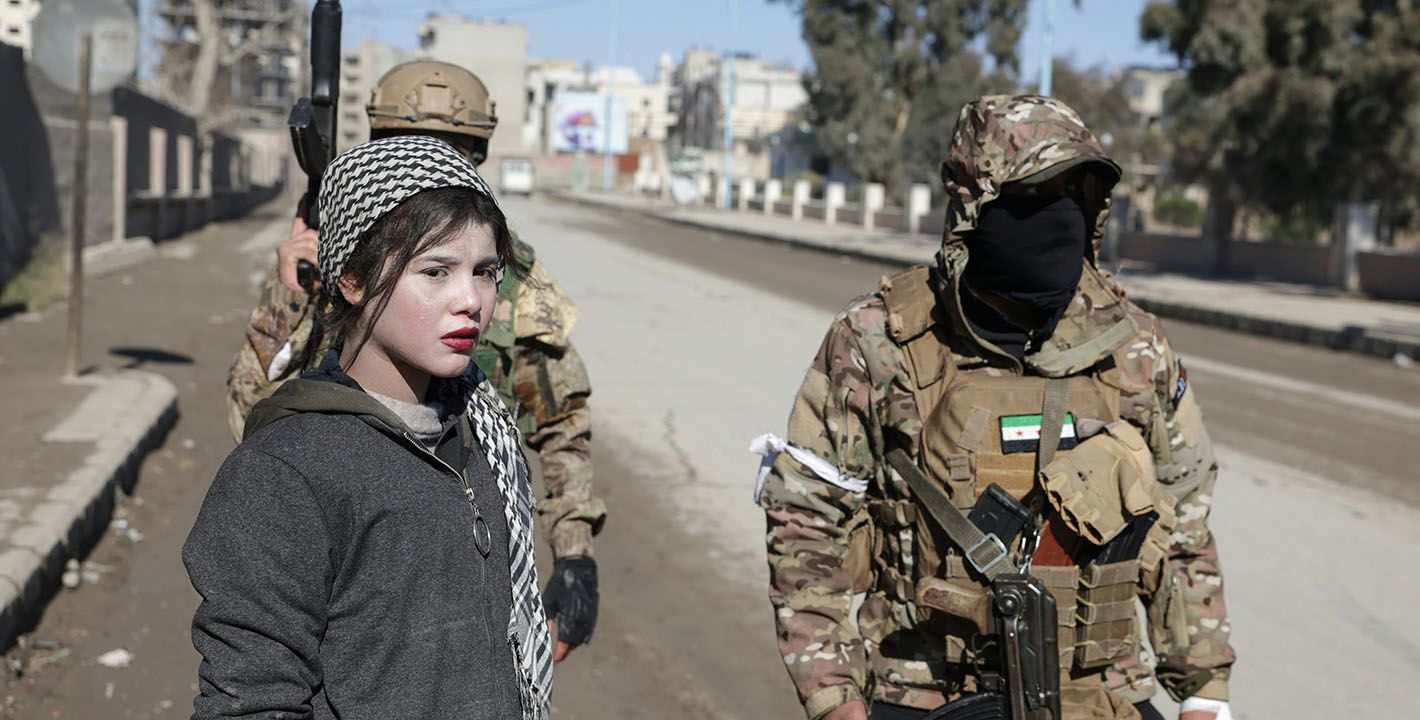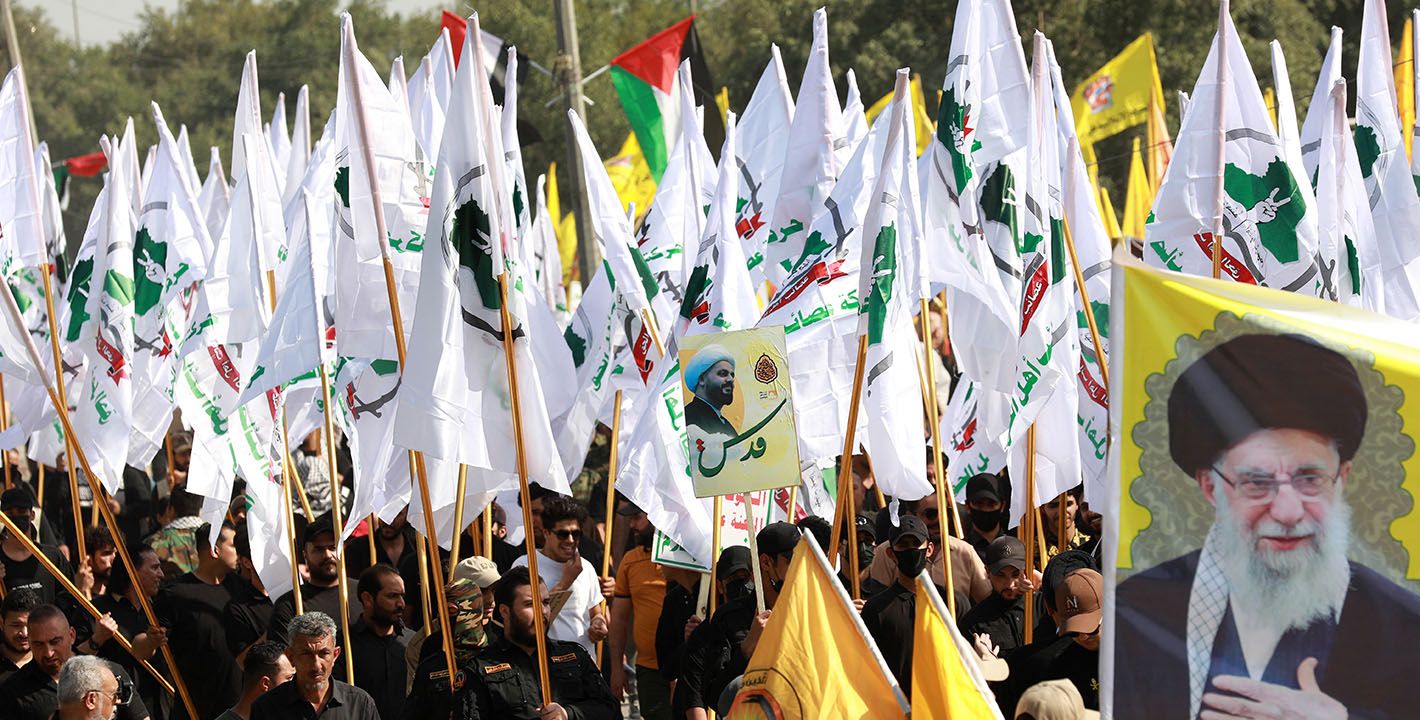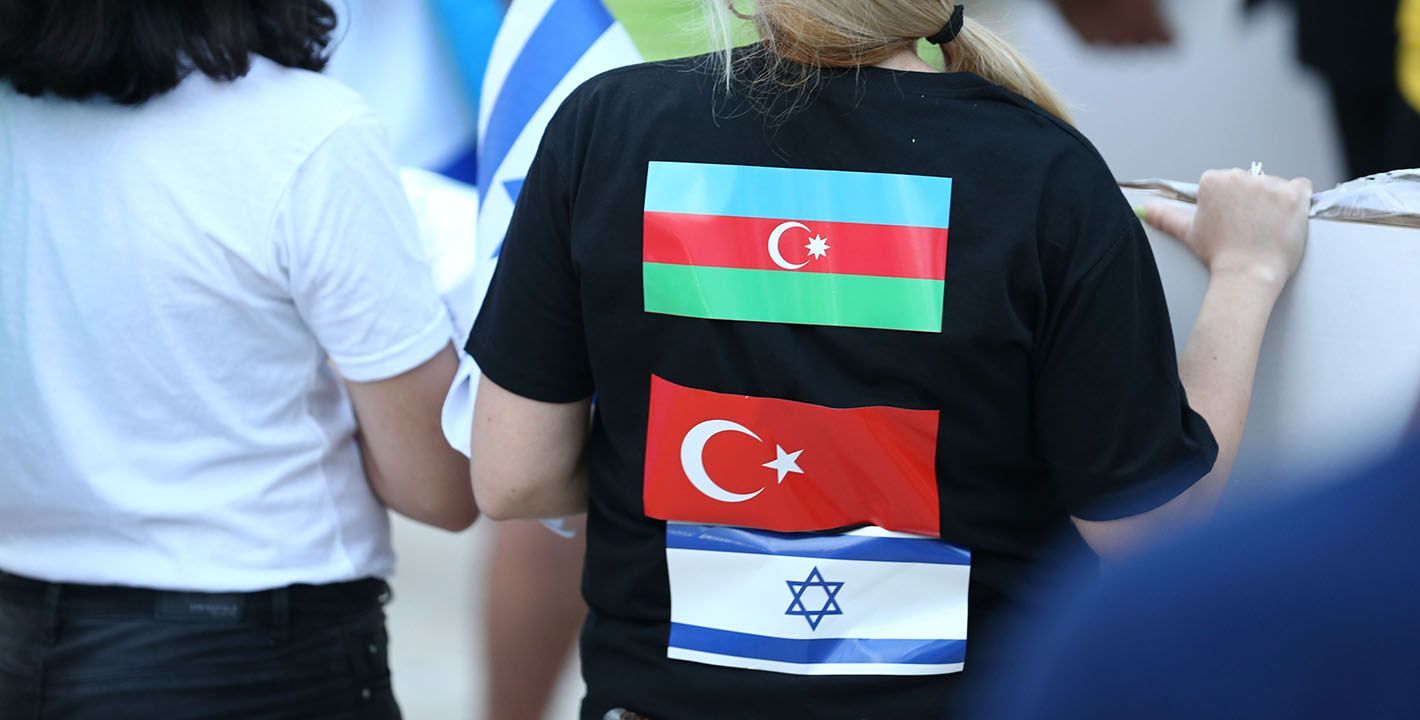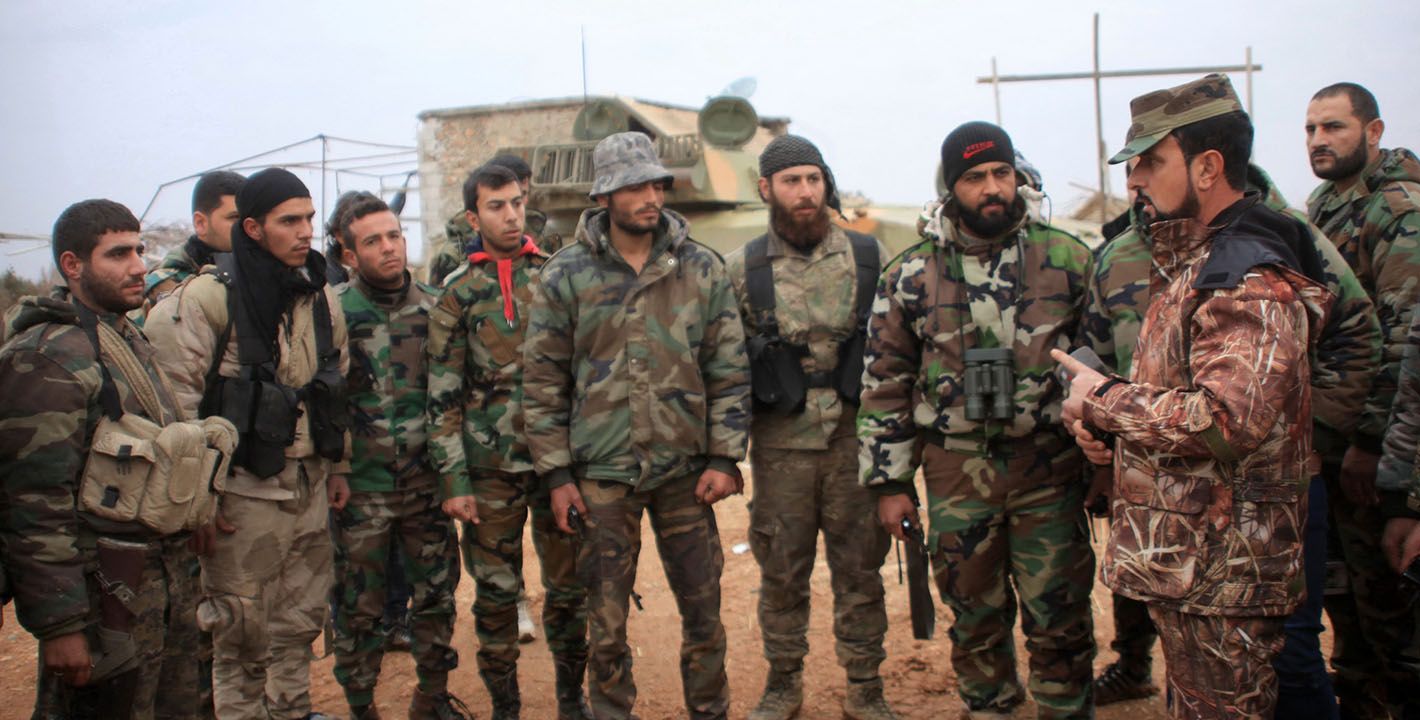Aron Lund
{
"authors": [
"Aron Lund"
],
"type": "commentary",
"blog": "Diwan",
"centerAffiliationAll": "dc",
"centers": [
"Carnegie Endowment for International Peace",
"Malcolm H. Kerr Carnegie Middle East Center"
],
"collections": [],
"englishNewsletterAll": "menaTransitions",
"nonEnglishNewsletterAll": "",
"primaryCenter": "Malcolm H. Kerr Carnegie Middle East Center",
"programAffiliation": "MEP",
"programs": [
"Middle East"
],
"projects": [],
"regions": [
"Middle East",
"Syria",
"Levant"
],
"topics": [
"Political Reform"
]
}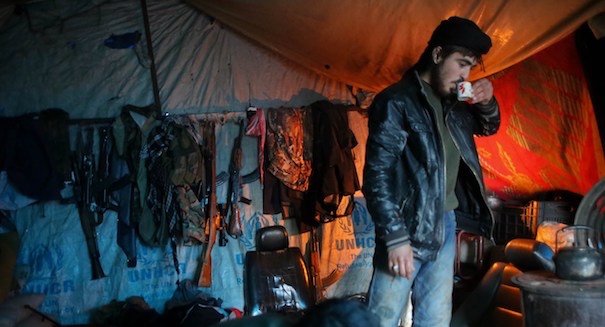
Source: Getty
In 1979, the Syrian Muslim Brotherhood declared war on the regime of then-president Hafez al-Assad, joining an armed revolt initiated by a splinter faction known as the Fighting Vanguard. The Baathist government cracked down brutally, making membership in the Brotherhood punishable by death through Law 49 of 1980, and killing thousands in the Hama massacre of February 1982. Refugees poured out of the country. Three decades later, history seems to be repeating itself, if on a far larger scale.
Indeed, some of the individuals who were involved in the previous uprising are involved in the current war, too. One of them is Abul-Abbas al-Shami, a religious scholar who later spent many years in prison. He was involved in negotiating a solution to the Seidnaia Prison revolts of 2008, emerging as a major influence over a younger generation of Islamist inmates. In 2011, some of his disciples helped create the Ahrar al-Sham Battalions, which evolved into the Ahrar al-Sham Islamic Movement, which remains one of most powerful armed opposition factions today.
Though Abul-Abbas served as head of the Sharia Council in the Islamic Front when it was created by Ahrar al-Sham and other factions in November 2013, he has more often stayed in the background. After the mysterious murder of Ahrar al-Sham’s founding leadership in September 2014, he was reportedly estranged from the group. But today Abul-Abbas clearly remains a respected and influential figure among the Syrian Islamists and his views are much sought-after in intra-opposition debates. He agreed to talk to Diwan and explain his views of the Syrian war.
Aron Lund: Sheikh Abul-Abbas, thank you for agreeing to talk to us. First, could you please tell us a bit about yourself? According to my information your real name is Mohammed Ayman Abul-Tout.
Abul-Abbas al-Shami: Yes, my name is as you said. I was born in Damascus in 1959, which means that I was a young man when the first revolution of the people of Syria took place in 1979. I joined one of the opposition factions at that time, but it was not the Muslim Brotherhood.
AL: Was it the Fighting Vanguard?
AAS: I was neither part of the Muslim Brotherhood nor of the Fighting Vanguard, but I will avoid stating the name of the group for security reasons. However, the regime used to categorize all opponents as members of the Muslim Brotherhood. It forced all prisoners—including me—to write in their own hand a confession of membership in the Muslim Brotherhood.
The sole reason for this insistence was to judge them according to Law 49, which condemned anyone proven to belong to the Muslim Brotherhood to death. Of course, it wouldn’t be asked how they could prove membership in the Muslim Brotherhood. It was truly a disgrace to humanity. If you had attended a religious class, you were a member of the Muslim Brotherhood. If you had a relative sleeping at your home who was a member of the Muslim Brotherhood—even if it was only for a single night—then you would be considered part of the Muslim Brotherhood.
When I was detained in one of their slaughterhouses—by which I mean, one of their security branches—an interrogating officer told me during the questioning: “I know you’re not part of the Muslim Brotherhood organization and I know there are many opposition groups in Syria, but we categorize them all as ‘Muslim Brotherhood’ because, to us, anyone who brings politics into religion is part of the Muslim Brotherhood.”
AL: After these arrests, you eventually left Syria?
AAS: Yes, I left Syria fleeing the criminal acts of the regime in early 1981. I remained in exile, moving between many countries, until I was finally expelled from a neighboring country to Syria in 1993, following a security deal concluded between the two countries.
AL: According to what I have heard, the country that expelled you to Syria was Turkey. Of course, relations between Ankara and Damascus have changed completely today.
AAS: I will abstain from commenting on this.
AL: Okay. You ended up in Syria and were jailed there. What happened?
AAS: I would remain in prison for thirteen years until I was finally released through a presidential amnesty in 2005.
Nine months later, I was arrested again following a deal between the regime and the American occupier of Iraq, overseen by the secretary general of the United Nations militia. The bias of the United Nations in favor of the arrogant oppressors and international hegemony has been proven, thus it deserves to be called “the United Nations militia.” The agreement related to the international court investigating the murder of [former Lebanese prime minister Rafik] Hariri and the border between Syria and Iraq.
So, as I said, I was arrested again. This also happened to be a few days after the end of the [Israeli-Hezbollah] July war charade in 2006, and I remained in prison until mid-2012. That is, about a year and three months after the start of the blessed Syrian revolution.
After my release, I traveled to northern Syria and I immediately resumed my struggle against this oppressive regime. I will continue on this path—with the help of God—until I die or until the rights of our people are achieved and oppression is lifted from us, removing the sectarian and oppressive regime and establishing a regime that satisfies God and our oppressed people.
AL: What about the stories of how you gathered a group of youths inside the Seidnaia prison and they went on to create Ahrar al-Sham? Could you please briefly recount this story for us?
AAS: We suffered a bitter experience in Seidnaia prison. One could say that it was a microcosm of what goes on in the Islamic arena of jihad, in terms of differences between currents, interpretations, understandings, and other such things, which are no secret to you.
I am talking about the bitter plight of the prison revolts. It began with the first revolt in late March 2008, when the inmates reacted against the oppression, the torture, and the denigration of religious sanctities by the prison administration. Then came the second revolt of July 5, 2008, which was retaliation by the prison administration for what had happened in the first uprising. It left tens of prisoners dead and wounded, because the regime used lethal weapons, including machine guns. It ended in the third revolt of December 5, 2008, in which some [younger prisoners] were also killed.
After that, the revolt began to die down. There formed within the prison a small, extremist trend that had its own view of how to resolve the prison crisis, namely by military means. Of course, this was a fantasy, considering the imbalance in forces. The dispute developed to a point where people who were at odds with them were accused of being agents of the regime, and there were cases of takfir [where other Muslim prisoners were denounced as apostates].
I was a member of the committee elected by the prisoners, by referendum and voting, to resolve the prison crisis peacefully, without the use of force, through negotiations with the regime, despite its oppression and criminality. This was the opinion of the vast majority in the prison, but to ensure the victory of this path we needed to overcome the suspicions and protests of the opponents by means of Islamic law, reason, and experience. We went through scholarly debates and debated all ideas, and this led to an intellectual and scholarly maturing for many. Among them were some who became leaders of fighting factions in Syria during the revolution, including leaders of the Ahrar al-Sham Battalions, may God bless them. As for myself, I was still in prison when a group of youths who had been released created what would later become known as the Ahrar al-Sham Movement, following its merger with other factions. The leaders of those factions had also all been in Seidnaia and benefited from their experience in the prison.
AL: What is your current relationship with Ahrar al-Sham?
AAS: It is the same as my relationship with many other factions in the field. It is the relationship of a party with one who provides fatwas, advice, and guidance so as to serve the interests of our people and revolution.
AL: As someone who has had the rare experience of personally witnessing and participating in both the conflict in the 1970s–1980s and the current conflict, what similarities and differences do you see between them?
AAS: I see a great deal of similarities between the two situations, most particularly that it has been decisively proven that most international actors protected the regime and prevented its fall during the first revolution, and that these actors are also the ones who have prevented its fall this time around. They are covering up [the Assad regime’s] crimes against the Syrian people. They prevent neighboring and friendly states from protecting the people and from providing its revolutionaries with advanced weapons that could have created a sort of balance of power on the battlefield.
The big difference is in the amount of destruction, death, and intentional displacement by the regime, and even by the great powers—as part of a hellish plan that is now understood by children as well as adults.
Even so, I think that it is a mistake to say that this is the end of history, and that the international and regional equation will always remain the same and can never change. Those who believe this are ignorant and deluded. Either they have not read history, or they have read it but failed to understand the divine laws according to which nations rise and fall in order to realize God’s justice on Earth. I am convinced that the hands of the clock are moving and that our duty to our people and to our revolution, today as well as tomorrow, is to defend our people against oppression by any means that are politically, militarily, and morally legitimate and realistic. And I am convinced that the outcome will favor the oppressed, not the arrogant.
AL: Let us return to the present day. There have been conflicts among Syrian Islamists over whether cooperation with Turkey or other nations is legitimate in fighting the Baathist government. There have been heated disputes between Ahrar al-Sham, Jabhat Fatah al-Sham, and the Free Syrian Army, as well as inside many factions. What is your position on this issue?
AAS: Military cooperation with the Turkish brethren and with non-Turks who are honest in their defense of the Syrian people is welcome. It is a national duty in the interest of our people and revolutionaries. I could respond in many ways to those among the people who disagree, but, at the same time, I have opposed the intervention of the Americans, due to the high sensitivity of this topic to our people and revolution. They view, and justly so, the United States as the cause of their misery and of the oppression that has befallen them over many years, particularly after the revolution.
Is it not the United States that opposed, and still opposes, a safe zone in northern Syria? Is it not the United States that prevents the revolutionaries from being supplied with advanced weapons, in particular air-defense weapons capable of repelling the aggression of aircraft against our people? Is it not the United States that supports the Kurdish separatist parties that work with the regime and whose oppression of other ethnicities in the areas under their control has been proven? Is it not the United States that allows weapons to reach the Islamic State in twisted ways, only to then claim it wants to fight the group?
There are many such acts that the United States has committed against the Syrian people. All of this has led to a loss of trust in the United States and in the veracity of its position. Because of this, the people and the revolutionaries view cooperation with Turkey and cooperation with the Americans very differently.
About the Author
Former Nonresident Fellow, Middle East Program
Aron Lund was a nonresident fellow in the Middle East Program and the author of several reports and books on the Syrian opposition movement.
- Going South in East GhoutaCommentary
- The Jihadi SpiralCommentary
Aron Lund
Recent Work
Carnegie does not take institutional positions on public policy issues; the views represented herein are those of the author(s) and do not necessarily reflect the views of Carnegie, its staff, or its trustees.
More Work from Diwan
- Kurdish Nationalism Rears its Head in SyriaCommentary
A recent offensive by Damascus and the Kurds’ abandonment by Arab allies have left a sense of betrayal.
Wladimir van Wilgenburg
- All Eyes on Southern SyriaCommentary
The government’s gains in the northwest will have an echo nationally, but will they alter Israeli calculations?
Armenak Tokmajyan
- The Hezbollah Disarmament Debate Hits IraqCommentary
Beirut and Baghdad are both watching how the other seeks to give the state a monopoly of weapons.
Hasan Hamra
- Iran’s Woes Aren’t Only DomesticCommentary
The country’s leadership is increasingly uneasy about multiple challenges from the Levant to the South Caucasus.
Armenak Tokmajyan
- Is Lebanon Hosting Officers of the Former Assad Regime?Commentary
Recent leaks made public by Al-Jazeera suggest that this is the case, but the story may be more complicated.
Mohamad Fawaz

